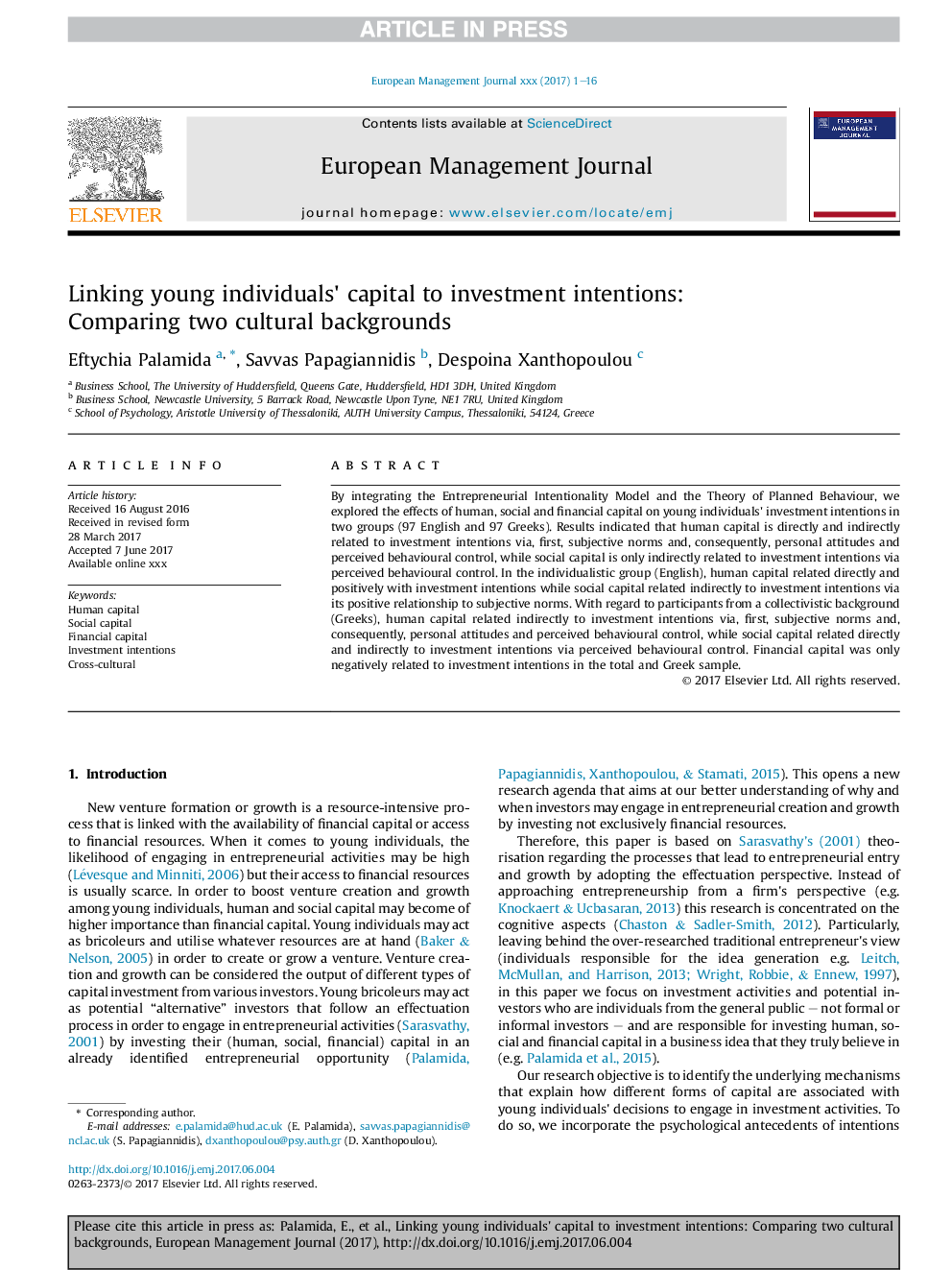ترجمه فارسی عنوان مقاله
پیوند سرمایه های جوانان با اهداف سرمایه گذاری: مقایسه دو زمینه فرهنگی
عنوان انگلیسی
Linking young individuals' capital to investment intentions: Comparing two cultural backgrounds
| کد مقاله | سال انتشار | تعداد صفحات مقاله انگلیسی |
|---|---|---|
| 95017 | 2017 | 16 صفحه PDF |
منبع

Publisher : Elsevier - Science Direct (الزویر - ساینس دایرکت)
Journal : European Management Journal, Available online 4 July 2017
ترجمه کلمات کلیدی
سرمایه انسانی، سرمایه اجتماعی، سرمایه مالی، مقاصد سرمایه گذاری، فرهنگی متقابل،
کلمات کلیدی انگلیسی
Human capital; Social capital; Financial capital; Investment intentions; Cross-cultural;
ترجمه چکیده
با ادغام مدل ذهنی کارآفرینی و نظریه رفتار برنامه ریزی شده، اثرات سرمایه انسانی، اجتماعی و مالی بر روی اهداف سرمایه گذاری جوانان در دو گروه (97 انگلیسی و 97 یونانی) مورد بررسی قرار گرفت. نتایج نشان می دهد که سرمایه انسانی مستقیما و غیر مستقیم مربوط به اهداف سرمایه گذاری است، از اول، هنجارهای ذهنی و در نتیجه نگرش های شخصی و کنترل رفتاری درک شده، در حالی که سرمایه اجتماعی تنها به طور غیر مستقیم مرتبط با اهداف سرمایه گذاری از طریق کنترل رفتاری درک شده است. در گروه فردگرایی (انگلیسی)، سرمایه انسانی به طور مستقیم و مثبت با اهداف سرمایه گذاری ارتباط داشت، در حالی که سرمایه اجتماعی به طور غیر مستقیم به نیت های سرمایه گذاری از طریق رابطه مثبت آن با هنجارهای ذهنی مرتبط بود. با توجه به مشارکت کنندگان از پس زمینه ی همگانی (یونانیان)، سرمایه انسانی به طور غیر مستقیم به اهداف سرمایه گذاری مربوط می شود، از اول، هنجارهای ذهنی و در نتیجه نگرش های شخصی و کنترل رفتاری درک شده، در حالی که سرمایه اجتماعی به طور مستقیم و غیر مستقیم به نیت های سرمایه گذاری به وسیله کنترل رفتاری درک شده . سرمایه مالی تنها به اهداف سرمایه گذاری در مجموع و نمونه یونانی منفی منفی بود.

